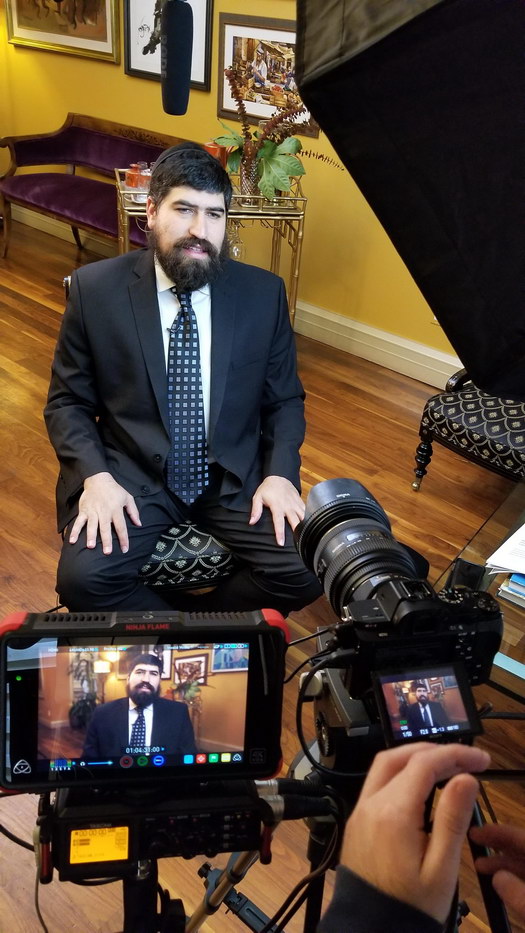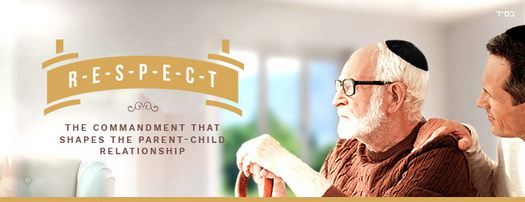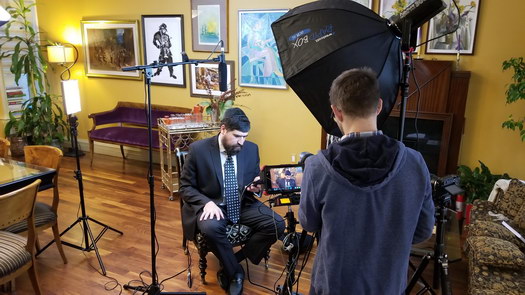
Q&A: For Children of All Ages in a Disrespecting World, How to Honor Your Parents
by Menachem Posner – chabad.org
Chabad.org will host a four-part online course on consecutive Tuesdays starting Aug. 20 titled R-E-S-P-E-C-T: The Commandment That Shapes the Parent-Child Relationship. Presented by Rabbi Raleigh Resnick, director of Chabad of the Tri-Valley in Northern California, the course will walk students through the reasons, parameters and ramifications of the Fifth Commandment, the requirement to honor parents.
In the following conversation, Resnick, who was ordained by former Chief Rabbi Mordechai Eliyahu of Israel, explains why the course is so relevant, where the material was culled and what participants can expect.
Q: The 10 Commandments have been around for more than 3,300 years. Why is this especially relevant now in 2019?
A: I am so glad you asked that. Unfortunately, the news is all too full of reports of mass shootings and other hateful incidents perpetrated by disenfranchised young people. Obviously, each killer comes with his own laundry list of ailments and issues that brought him to the brink, but it’s clear that society is suffering from fragmentation and people are desperate to find something they can identify with.
A lot of this has to do with what we can term the “generation gap.” The values and feeling of belonging that personified previous generations are not automatically transferring to the next generation, and this leaves people alone, rudderless and susceptible to online hatemongers.
As I discuss in the course, Abarbanel teaches that the primary reason Torah obligates children to honor their parents is in order to facilitate an unbroken transmission of religious and moral teachings from one generation to the next.
I’m not suggesting that highlighting the need to respect parents will solve the entire issue, but it can certainly help stem the tide as part of a broader reconnection to the values and morality we once took for granted.
On another note, people are living longer, and adult children are spending more years in the role of caregiver for aging parents, taxing the strength of their relationship and commitment, requiring a heightened understanding of this special mitzvah, as well as its limits.
Q: What was it like to research this course? What resources did you use to put together the material?
A: One of the nice things about this topic is that you do not need to look at obscure Jewish sources to find it discussed. It’s front and center in the Ten Commandments and then repeated again in the Torah, so the material was there waiting to be unpacked. It’s also discussed very clearly in the Talmud and Code of Jewish Law. In fact, the bigger and more difficult job was to filter out what not to say. I needed to sift out what not to include or the course would be much longer than just four sessions.
Q: As you worked with the material, was there something especially meaningful to you?
A: On a personal note, I lost my father when I was just 23 years old, so learning how the obligation to honor parents extends even after death was particularly germane to me.
Preparing this course served as a personal reminder to me of how high the bar is and how much we are required to do for our parents. We all have parents—aging parents, difficult parents, loving parents, needy parents. Relearning these laws drove home to me how important this really is for a child. Loving one another is the foundation of the Torah, and sometimes, the most difficult thing is to love those closest to us.
Q: Can you share with readers what they can expect to learn in each of the four parts?
A: The first session introduces the mitzvah, its source in the Torah, the classic reasons provided by the commentaries and its centrality in Judaism.
The second lesson focuses on what we are obligated to do and the basic parameters of what the Torah expects of us. Drawing on examples in the Talmud and Midrash, we learn how far this mitzvah extends and what the practical ramifications are.
The third class is devoted to the caveats—specific cases such as abusive parents or parents with unreasonable expectations, where the normal rules are suspended.
The fourth class has two parts. The first half discusses our obligation towards grandparents, in-laws, step-parents, adopted parents. We then conclude by looking to the parents’ perspective, exploring what the parent needs to do for their children in order to make this dynamic work optimally.
Q: Any final thoughts about what you hope to accomplish with this course?
A: A few years back, I presented a Chabad.org course called “Pathways to Forgiveness.” It was very well-received, and I was especially gratified to get feedback from people who told me that they had mended broken relationships and opened up to forgiveness as a result of what they learned.
So many people of all ages are struggling with breakdowns in the parent-child dynamic. If we can help some people make some positive changes by increasing their understanding of this mitzvah, it will be worth it.
R-E-S-P-E-C-T will be presented on four consecutive Tuesdays starting Aug. 20 and then available for enrolled students to watch at their own pace. Each lecture will be accompanied by texts, Facebook discussions with fellow students and quizzes, with student support at every step of the way. The course is offered free of charge, though sign-up is required.













